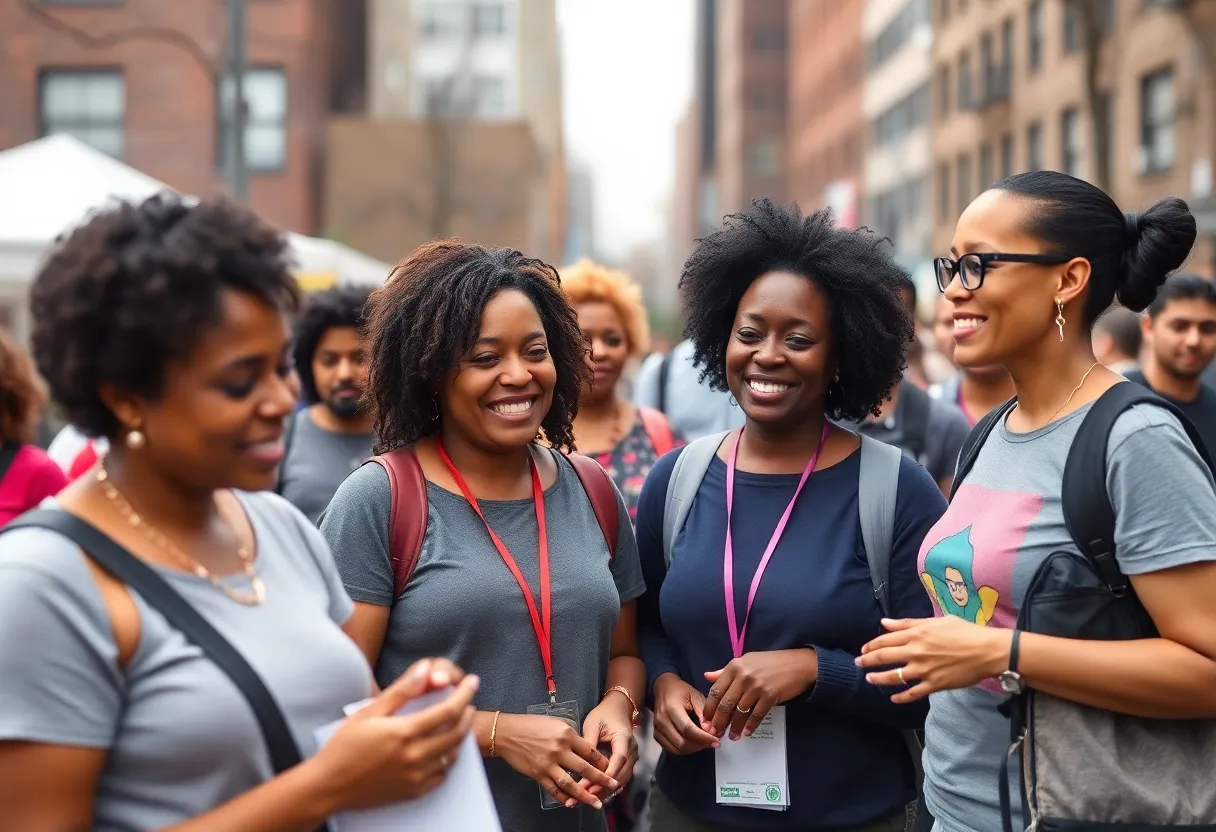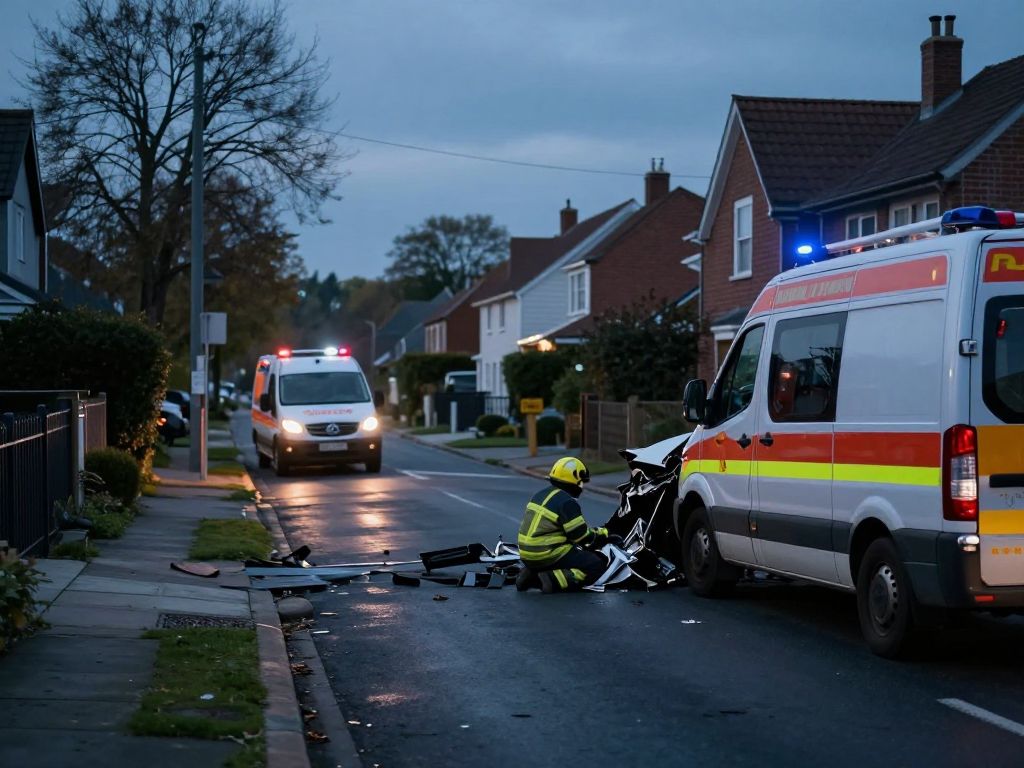News Summary
Boston has unveiled a $5 million health initiative aimed at bridging life expectancy gaps in underserved neighborhoods like Dorchester, Roxbury, and Mattapan. The program, led by the Mayor’s Office and local health organizations, seeks to tackle significant disparities in health and economic security among residents. With plans for comprehensive community support, the initiative aims to enhance career training, financial assistance, and food distribution services, striving to close the life expectancy gap by 2035.
Boston has launched a significant health initiative, allocating $5 million in grant funding with the aim of addressing life expectancy disparities in underserved neighborhoods. This funding is specifically targeted at residents in Dorchester, Roxbury, and Mattapan, where the average life expectancy is notably lower—by 20 to 23 years—than that of residents in affluent areas like Back Bay.
The initiative represents a partnership among the Mayor’s Office, the Boston Public Health Commission, and the Atrius Health Equity Foundation. Mayor Michelle Wu has emphasized the city’s commitment to closing the life expectancy gap by the year 2035.
Current statistics reveal stark disparities: residents of Back Bay have an average life expectancy of 92 years, in stark contrast to those in Roxbury, Dorchester, and Mattapan, whose life expectancies are recorded at 68.8, 71.6, and 73.8 years, respectively. The health gap highlights significant racial and ethnic disparities; the average life expectancy for Black residents hovers seven years lower than that of other groups in Boston, and Black men, in particular, face a sobering average life expectancy that is 10 years shorter than that of their male counterparts in the city.
Contributing to these disparities, cardiometabolic diseases—such as diabetes and heart disease—rank among the top three causes of premature death for residents under 65 years old, disproportionately affecting communities of color.
Despite Boston boasting a median household income of $94,755, income inequality remains pronounced. While neighborhoods such as South Boston and the Seaport achieve median incomes of $162,257, Roxbury lags significantly behind with a median income of only $49,921. Moreover, socio-economic data indicates the median income for white residents is $131,953, compared to $58,628 for Black residents and $53,873 for Latino residents. With approximately 17% of Boston’s population living in poverty, Mattapan is particularly affected, exhibiting a high percentage of children under five years old living below the poverty line at a rate of 34%.
The $5 million in grant funding has been determined based on a comprehensive community needs assessment that underscores the necessity for enhanced resources and support aimed at improving economic security for residents. A considerable portion of these funds will be allocated towards screening for financial health assistance, developing career training programs in health and education, providing financial coaching, and implementing food distribution services.
This announcement marks the first tranche of funding in a larger initiative, with a total of $10 million available through the Atrius Health Equity Foundation, and a second round of funding expected to be rolled out by 2028. Collaborative efforts will be directed at tackling the structural inequalities that have historically contributed to health disparities within Boston.
Mayor Wu has reiterated the vital importance of investing in essential services such as affordable housing, access to nutritious food, and pathways for economic mobility, as key components of the broader health equity agenda.
These funding efforts coincide with a growing recognition of the dramatic differences in life expectancy across neighborhoods, which have been the subject of previous analyses. The new approach proposed by the Boston Public Health Commission intends to address societal factors impacting health in a more systemic manner, rather than focusing on treating individual health concerns in isolation.
With this initiative, Boston aims not only to mitigate life expectancy disparities but also to foster a healthier, more equitable community for all its residents.
Deeper Dive: News & Info About This Topic
HERE Resources
Massachusetts Lawmakers Advance Bill for Abortion and Transgender Care Protections
Journalists Attacked While Covering Drug Market in Boston
Boston Faces Serious Challenges from Opioid Crisis
Boston Gears Up for Summer Weekend Events
Boston Rhythm Riders Bring Soul Line Dancing to Community
Boston Achieves 13th Place in ACSM Fitness Index
UMass Boston Forms Partnership with Derry for Educational Advancement
Cape Cod Nurse Charged with Drug Larceny in East Boston
Harvard Kennedy School Launches American Service Fellowship Fund
Boston Considers Styrofoam Ban Amid Environmental Concerns
Additional Resources
- Boston Herald
- Wikipedia: Life Expectancy
- Bay State Banner
- Google Search: Life Expectancy Disparities
- Boston Globe
- Google Scholar: Health Disparities
- Hoodline
- Encyclopedia Britannica: Health Equity
- Dorchester Reporter
- Google News: Boston Life Expectancy

Author: STAFF HERE BOSTON WRITER
The BOSTON STAFF WRITER represents the experienced team at HEREBoston.com, your go-to source for actionable local news and information in Boston, Suffolk County, and beyond. Specializing in "news you can use," we cover essential topics like product reviews for personal and business needs, local business directories, politics, real estate trends, neighborhood insights, and state news affecting the area—with deep expertise drawn from years of dedicated reporting and strong community input, including local press releases and business updates. We deliver top reporting on high-value events such as Boston Marathon, Head of the Charles Regatta, and Boston Harborfest. Our coverage extends to key organizations like the Greater Boston Chamber of Commerce and Associated Industries of Massachusetts, plus leading businesses in finance, biotech, and insurance that power the local economy such as Fidelity Investments, Biogen, and Liberty Mutual Insurance. As part of the broader HERE network, we provide comprehensive, credible insights into Massachusetts's dynamic landscape.





